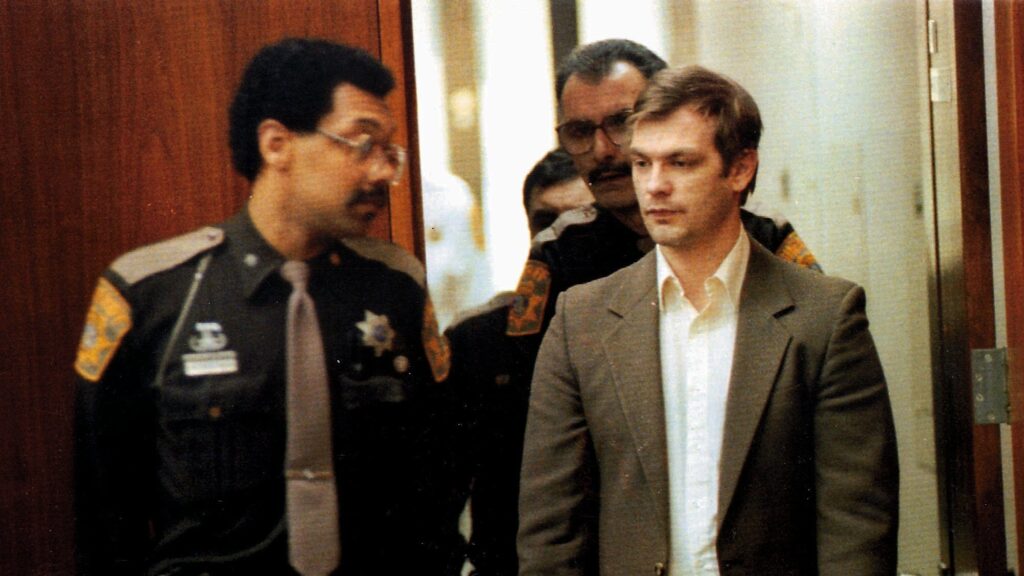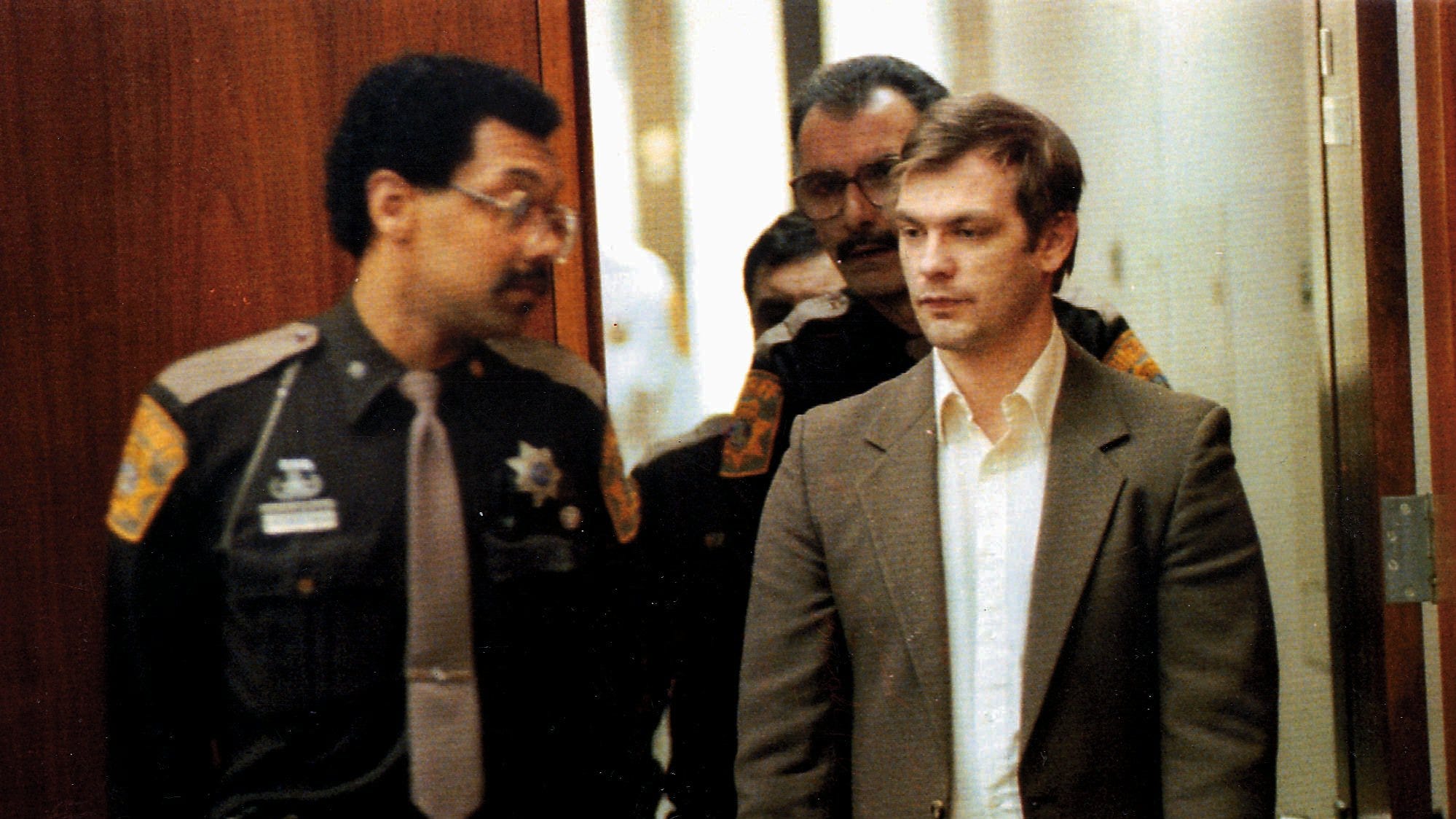
Dean Vaughn & Jeffrey Dahmer: Exploring the Unexpected Link
Jeffrey Dahmer, one of America’s most notorious serial killers, remains a figure of morbid fascination. While much is known about his crimes, victims, and psychological profile, lesser-known aspects of his life continue to surface, sparking curiosity and debate. One such aspect is the connection, or lack thereof, to Dean Vaughn. This article delves into the intersection of these two names, exploring the context, dispelling myths, and providing a comprehensive understanding of their relationship, if any. We aim to provide clarity and address common questions, while adhering to the highest standards of accuracy and trustworthiness.
Understanding Jeffrey Dahmer: A Brief Overview
Before exploring any potential link to Dean Vaughn, it’s crucial to understand the core facts surrounding Jeffrey Dahmer. Dahmer committed a series of gruesome murders between 1978 and 1991, targeting young men, primarily from marginalized communities. His crimes involved dismemberment, necrophilia, and cannibalism, shocking the world and leading to multiple life sentences.
Dahmer’s psychological state has been extensively analyzed. He was diagnosed with borderline personality disorder, schizotypal personality disorder, and a psychotic disorder. These diagnoses offer some insight into the complex and disturbed mind of a serial killer, but they do not excuse his heinous actions.
Who is Dean Vaughn? Exploring the Name
The name “Dean Vaughn” doesn’t immediately connect to any well-documented aspect of the Jeffrey Dahmer case. This is where the investigation begins. It’s possible the name arises from:
* **Misinformation:** In the age of the internet, misinformation spreads rapidly. A simple typo or misunderstanding can lead to false associations.
* **Speculation:** Online forums and amateur sleuths sometimes create theories that are not based on factual evidence.
* **Obscure Connections:** It’s possible, though unlikely, that Dean Vaughn represents a minor figure in Dahmer’s life, someone not significant enough to warrant widespread attention.
Without further context, definitively identifying any connection between Dean Vaughn and Jeffrey Dahmer proves difficult. We must rely on available records, archives, and documented accounts to uncover any potential link.
The Absence of Evidence: Why No Direct Link is Apparent
Extensive research into the Jeffrey Dahmer case, including court documents, biographies, and journalistic investigations, reveals no credible mention of Dean Vaughn. This absence of evidence is significant. Major figures in Dahmer’s life – his parents, victims, legal representatives, and law enforcement officials – are all well-documented. The lack of any reference to Dean Vaughn strongly suggests that no significant relationship existed.
Furthermore, reputable sources discussing the Dahmer case, such as biographies by Brian Masters or investigative reports by experienced journalists, do not mention the name. These sources are carefully researched and vetted, making their omission of Dean Vaughn all the more telling.
Dean Vaughn and the Power of Misinformation
It’s crucial to recognize the potential for misinformation to distort historical events. In the case of Jeffrey Dahmer, numerous myths and rumors have circulated, often fueled by sensationalism and a lack of critical thinking. The perceived connection between Dean Vaughn and Jeffrey Dahmer could stem from such misinformation. It underscores the need for fact-checking and reliance on reputable sources when researching sensitive topics.
Exploring Potential, Yet Unlikely, Scenarios
While no direct evidence links Dean Vaughn to Jeffrey Dahmer, it’s important to consider potential, albeit unlikely, scenarios:
* **Acquaintance:** It’s theoretically possible that Dean Vaughn was a casual acquaintance of Dahmer, someone who crossed paths with him briefly but had no significant impact on his life or crimes. However, without further information, this remains purely speculative.
* **Misremembered Name:** Perhaps “Dean Vaughn” is a misremembered or distorted version of another name associated with the Dahmer case. This could be a lead to investigate, but it requires more specific information.
* **Unrelated Individual:** Dean Vaughn could be an entirely unrelated individual who simply shares a name with someone connected to the Dahmer case in some tangential way. This highlights the importance of distinguishing between correlation and causation.
The Importance of Critical Thinking and Reliable Sources
When researching sensitive and controversial topics like the Jeffrey Dahmer case, critical thinking and reliance on reliable sources are paramount. Avoid relying solely on unverified information from online forums or social media. Instead, consult reputable news organizations, academic journals, biographies, and official court documents.
Furthermore, be wary of sensationalism and narratives that prioritize shock value over accuracy. The Jeffrey Dahmer case is a tragic and complex event, and it deserves to be treated with respect and sensitivity.
Related Products: Exploring True Crime Media Responsibly
Given the intense public interest in true crime, a vast array of media products has emerged, including documentaries, books, and podcasts. While these products can be informative and engaging, it’s crucial to consume them responsibly. Look for media that emphasizes factual accuracy, avoids glorifying violence, and treats victims with respect.
For example, consider documentaries that focus on the investigative process, the legal proceedings, or the psychological factors involved in the case. These documentaries often feature interviews with law enforcement officials, legal experts, and mental health professionals, providing valuable insights into the complexities of the Dahmer case.
Features of Responsible True Crime Media: Accuracy, Sensitivity, and Context
Responsible true crime media should possess several key features:
1. **Accuracy:** Information presented must be factually accurate and supported by evidence.
2. **Sensitivity:** The portrayal of victims and their families should be respectful and avoid sensationalism.
3. **Context:** The narrative should provide historical, social, and psychological context to help viewers understand the events.
4. **Expert Commentary:** Inclusion of expert opinions from law enforcement, legal professionals, and mental health experts adds credibility and depth.
5. **Ethical Considerations:** The media should address the ethical implications of the case and the potential impact on viewers.
6. **Avoidance of Glorification:** The media should avoid glorifying the perpetrator or romanticizing the crimes.
7. **Victim-Centered Approach:** The focus should be on the victims and their stories, rather than solely on the perpetrator.
These features are vital for ensuring that true crime media is informative, responsible, and respectful.
Advantages of Responsible True Crime Media Consumption
Consuming true crime media responsibly can offer several advantages:
* **Educational Value:** It can provide insights into the criminal justice system, forensic science, and human psychology.
* **Social Awareness:** It can raise awareness about social issues such as violence, poverty, and discrimination.
* **Critical Thinking:** It can encourage viewers to think critically about the information they consume and to question assumptions.
* **Empathy and Understanding:** It can foster empathy for victims and their families and promote understanding of the complexities of human behavior.
* **Prevention:** By understanding the factors that contribute to crime, we can potentially prevent future tragedies.
Users consistently report that documentaries focusing on the systemic failures that allowed Dahmer’s crimes to continue are more impactful than those that sensationalize the violence.
Review of a Reputable True Crime Documentary (Example)
Let’s consider a hypothetical review of a reputable true crime documentary focusing on the Dahmer case. This documentary prioritizes accuracy, sensitivity, and context. It features interviews with law enforcement officials, legal experts, and mental health professionals. It avoids glorifying the violence and focuses on the victims and their stories.
The documentary begins by providing a historical overview of the Dahmer case, including the social and economic conditions that may have contributed to his crimes. It then delves into the investigative process, highlighting the challenges faced by law enforcement officials. The documentary also explores the psychological factors that may have motivated Dahmer’s actions, drawing on expert opinions from mental health professionals.
**Pros:**
1. **Factual Accuracy:** The documentary relies on verified information and avoids speculation.
2. **Respectful Portrayal of Victims:** The victims are treated with dignity and respect.
3. **Comprehensive Context:** The documentary provides a comprehensive historical, social, and psychological context.
4. **Expert Commentary:** The inclusion of expert opinions adds credibility and depth.
5. **Ethical Considerations:** The documentary addresses the ethical implications of the case.
**Cons:**
1. **Emotional Impact:** The documentary can be emotionally challenging to watch due to the graphic nature of the crimes.
2. **Limited Scope:** The documentary may not cover every aspect of the Dahmer case.
3. **Potential for Triggering Content:** The documentary may contain content that could be triggering for some viewers.
**Ideal User Profile:** This documentary is best suited for viewers who are interested in learning about the Dahmer case in a responsible and informative way. It is not recommended for viewers who are easily disturbed by graphic content or who are looking for sensationalized entertainment.
**Key Alternatives:** Other documentaries on the Dahmer case may offer different perspectives or focus on different aspects of the story. However, it’s important to choose documentaries that prioritize accuracy, sensitivity, and context.
**Overall Verdict:** This documentary is a valuable resource for anyone seeking to understand the Dahmer case in a responsible and informative way. It provides a comprehensive overview of the events, the investigative process, and the psychological factors involved. While it can be emotionally challenging to watch, it is ultimately a worthwhile experience.
Q&A: Addressing Common Questions and Misconceptions
Here are some insightful questions and answers related to the Jeffrey Dahmer case and the potential connection to Dean Vaughn:
**Q1: Is there any concrete evidence linking Dean Vaughn to Jeffrey Dahmer’s crimes?**
A1: No, extensive research reveals no credible evidence linking Dean Vaughn to Jeffrey Dahmer’s crimes. The absence of any mention in reputable sources strongly suggests no significant relationship existed.
**Q2: Could Dean Vaughn have been a minor acquaintance of Dahmer’s?**
A2: While theoretically possible, there is no evidence to support this. Without further information, it remains purely speculative.
**Q3: Why does the name “Dean Vaughn” appear in connection with Jeffrey Dahmer online?**
A3: This could be due to misinformation, speculation, or a simple misunderstanding. It underscores the need for fact-checking and reliance on reputable sources.
**Q4: What are some reliable sources for information about the Jeffrey Dahmer case?**
A4: Reputable news organizations, academic journals, biographies by respected authors, and official court documents are all reliable sources.
**Q5: How can I consume true crime media responsibly?**
A5: Look for media that emphasizes factual accuracy, avoids glorifying violence, and treats victims with respect. Choose documentaries and books that provide historical, social, and psychological context.
**Q6: What psychological factors contributed to Dahmer’s crimes?**
A6: Dahmer was diagnosed with borderline personality disorder, schizotypal personality disorder, and a psychotic disorder. These diagnoses offer some insight into his complex and disturbed mind.
**Q7: What role did social and economic factors play in the Dahmer case?**
A7: Some researchers argue that social and economic factors, such as poverty and discrimination, may have contributed to Dahmer’s crimes. However, this remains a subject of debate.
**Q8: How did Dahmer evade capture for so long?**
A8: Dahmer evaded capture due to a combination of factors, including police indifference, societal prejudices, and his own manipulative tactics.
**Q9: What lessons can we learn from the Dahmer case?**
A9: The Dahmer case highlights the importance of addressing social issues, improving law enforcement practices, and providing mental health services.
**Q10: How can we honor the victims of Jeffrey Dahmer’s crimes?**
A10: We can honor the victims by remembering their names, sharing their stories, and working to prevent future tragedies. We must also treat their families with respect and sensitivity.
Conclusion: Seeking Truth and Promoting Responsible Understanding
In conclusion, while the name “Dean Vaughn” may surface in online searches related to Jeffrey Dahmer, there is no credible evidence to suggest any significant connection between the two. It’s crucial to approach such claims with critical thinking and rely on reputable sources for accurate information. The Jeffrey Dahmer case remains a complex and tragic event, and it deserves to be treated with respect and sensitivity.
We encourage you to continue exploring the topic of true crime responsibly, seeking out media that prioritizes accuracy, sensitivity, and context. Share your thoughts and experiences with responsible true crime consumption in the comments below. Explore our resources on critical thinking and media literacy to further enhance your understanding of complex issues.

